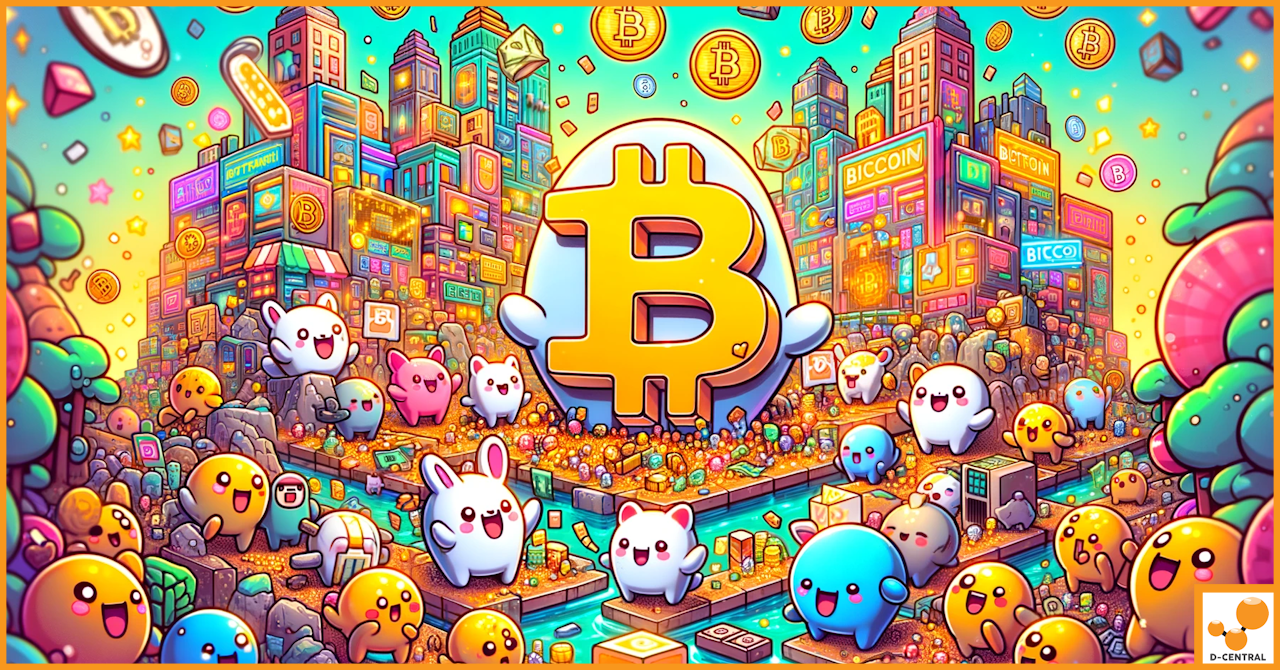Hosting vs. Self Mining: A Comprehensive Financial and Strategic Comparison
In the ever-evolving world of digital currencies, cryptocurrency mining stands as a fundamental pillar, driving the decentralization and security of
4479 Desserte Nord Autoroute 440, Laval, QC H7P 6E2

In an era where computing power is the new currency, one platform is emerging as a game-changer: GPUtopia. Imagine a world where anyone can tap into a global mesh network of GPU resources, transcending the limitations of centralized systems. This is not a distant utopia; it’s GPUtopia, and it’s here to redefine how we think about GPU computing.
As we navigate the complexities of the computing age, GPUtopia stands as a beacon of innovation. By democratizing access to GPU resources and integrating Bitcoin-based transactions, it is breaking down barriers and levelling the playing field. No longer are GPUs the exclusive domain of large corporations with deep pockets; GPUtopia makes it possible for anyone to buy or sell GPU capacity. This is more than just a marketplace; it’s a revolution that is setting the stage for a more equitable, efficient, and decentralized computing ecosystem.
In today’s digital landscape, the demand for GPUs has skyrocketed, outpacing supply to the point where, as Elon Musk aptly puts it, “GPUs are now considerably harder to get than drugs.” This surge in demand has led to what many are calling a “GPU arms race,” where large corporations are stockpiling these valuable resources, leaving smaller players struggling to keep up.
Enter GPUtopia, a platform designed to democratize access to GPU resources. Unlike traditional models that favour large corporations, GPUtopia operates on a decentralized network, allowing anyone to buy or sell GPU capacity. This is particularly revolutionary for smaller players who can’t afford to stockpile GPUs but still require them for various computing tasks, be it Bitcoin mining or AI algorithms.
By creating a global mesh network for GPU computing, GPUtopia effectively redistributes the power dynamics in the GPU market. No longer do you need to be a tech giant to have access to high-quality GPU resources; through GPUtopia, even individual users can tap into this network and either sell their extra GPU capacity or buy what they need. What’s more, all these transactions can be conducted in Bitcoin, further enhancing the platform’s appeal to a broader audience, especially those aligned with the principles of decentralization and financial sovereignty.
In essence, GPUtopia is not just another marketplace; it’s a solution to the increasing demand for GPUs, offering a more equitable distribution of resources and opening up opportunities for innovation and growth in the computing age.
Regulatory capture is a phenomenon where regulatory agencies, which are supposed to act in the public interest, are co-opted by the industries they are supposed to regulate. In the GPU market, this has manifested in the form of lobbying efforts by large corporations. Over 20 major companies are currently lobbying for regulations that would make it more challenging for smaller players to compete effectively. These regulations often come under the guise of “safety” or “quality control,” but their real intent is to create barriers to entry and stifle competition.
GPUtopia stands as a disruptive force against this backdrop of regulatory capture. By operating on a decentralized network, the platform inherently bypasses many of the traditional gatekeeping mechanisms that large corporations and regulatory bodies put in place. There are no quotas, waitlists, or convoluted governance mechanisms; just a straightforward marketplace where supply and demand dictate pricing.
This democratization of access is a direct challenge to the status quo, undermining the power structures that have kept the GPU market in the hands of a few. By enabling anyone to buy or sell GPU capacity and facilitating these transactions with Bitcoin, GPUtopia is not just levelling the playing field; it’s reshaping it entirely.
In doing so, GPUtopia offers a blueprint for how industries can break free from the constraints of regulatory capture. It serves as a case study of how decentralization and blockchain technology can be leveraged to create more equitable and open markets, fostering innovation and competition rather than stifling it.
Regulatory capture is a phenomenon where regulatory agencies, which are supposed to act in the public interest, are co-opted by the industries they are supposed to regulate. In the GPU market, this has manifested in the form of lobbying efforts by large corporations. Over 20 major companies are currently lobbying for regulations that would make it more challenging for smaller players to compete effectively. These regulations often come under the guise of “safety” or “quality control,” but their real intent is to create barriers to entry and stifle competition.
GPUtopia stands as a disruptive force against this backdrop of regulatory capture. By operating on a decentralized network, the platform inherently bypasses many of the traditional gatekeeping mechanisms that large corporations and regulatory bodies put in place. There are no quotas, waitlists, or convoluted governance mechanisms; just a straightforward marketplace where supply and demand dictate pricing.
This democratization of access is a direct challenge to the status quo, undermining the power structures that have kept the GPU market in the hands of a few. By enabling anyone to buy or sell GPU capacity and facilitating these transactions with Bitcoin, GPUtopia is not just leveling the playing field; it’s reshaping it entirely.
In doing so, GPUtopia offers a blueprint for how industries can break free from the constraints of regulatory capture. It serves as a case study in how decentralization and blockchain technology can be leveraged to create more equitable and open markets, fostering innovation and competition rather than stifling it.
One of the most compelling advantages of GPUtopia’s decentralized model is the cost-efficiency it brings to the table. Traditional methods of accessing GPU resources often involve middlemen, service fees, and other overhead costs that can quickly add up. In contrast, GPUtopia’s peer-to-peer marketplace eliminates many of these extraneous costs, leading to significant savings. Users report an average of 30% cost savings when using GPUtopia compared to traditional methods, making it an economically viable option for both individual users and enterprises.
The advent of GPUtopia is not just a technological shift; it’s a paradigm shift. As we transition from the information age, characterized by data collection and analysis, to the computing age, the focus is now on how we can leverage this data for actionable insights and solutions.
GPUtopia is at the forefront of the transition the to computing age, providing the computational power needed to drive innovations in fields ranging from artificial intelligence to climate modelling. By democratizing access to GPUs, the platform is accelerating the pace of research and development, enabling breakthroughs that might have been impossible or prohibitively expensive under the old centralized models.
As GPUtopia continues to evolve, its roadmap is a testament to its commitment to innovation and user-centric design. One of the most anticipated features is the integration of smart contracts for automated transactions, with an expected rollout date in the second quarter of 2024. This will further streamline the buying and selling process, making it even more efficient and secure. Other planned features include enhanced security protocols and a more robust matchmaking algorithm to better pair buyers and sellers based on their specific needs.
As the worlds of Bitcoin mining and artificial intelligence continue to converge, GPUtopia is uniquely positioned to play a pivotal role in this integration. The platform’s decentralized nature and Bitcoin-based transactions make it an ideal marketplace for those involved in both Bitcoin mining and AI hashing.
By providing a secure and efficient way to access GPU resources, GPUtopia is enabling a new wave of innovation in these sectors. Miners can easily rent out their GPUs during off-peak hours, thereby maximizing their investment. Similarly, AI researchers can tap into this vast network of GPUs to run complex algorithms without the need for expensive, centralized infrastructure.
This synergy between Bitcoin mining and AI hashing is more than just a trend; it’s the future. GPUtopia is leading the way, serving as the nexus where these two transformative technologies meet.
In a world where computing power is increasingly becoming a critical resource, GPUtopia stands out as a revolutionary platform that is reshaping the landscape. By democratizing access to GPU resources, bypassing the pitfalls of regulatory capture, and fostering a more equitable and cost-efficient marketplace, GPUtopia is setting a new standard for what’s possible in the computing age. Its innovative approach to decentralization, coupled with its focus on leveraging Bitcoin for transactions, positions it as a game-changer that is disrupting traditional models and paving the way for a more inclusive, efficient, and decentralized future.
The future is decentralized, and GPUtopia is leading the charge. Don’t miss out on being part of this transformative journey. Whether you’re a Bitcoin miner, an AI researcher, or someone who believes in the power of decentralized networks, now is the time to act. Join GPUtopia today and be part of the future of decentralized computing.
DISCLAIMER: D-Central Technologies and its associated content, including this blog, do not serve as financial advisors or official investment advisors. The insights and opinions shared here or by any guests featured in our content are provided purely for informational and educational purposes. Such communications should not be interpreted as financial, investment, legal, tax, or any form of specific advice. We are committed to advancing the knowledge and understanding of Bitcoin and its potential impact on society. However, we urge our community to proceed with caution and informed judgment in all related endeavors.
Related Posts
In the ever-evolving world of digital currencies, cryptocurrency mining stands as a fundamental pillar, driving the decentralization and security of

In this comprehensive exploration, we delve into the world of micro-mining and its potential to revolutionize Bitcoin’s mining landscape. Discover

Application-Specific Integrated Circuit (ASIC) devices have become an integral part of modern technology. These specialized chips are designed for a